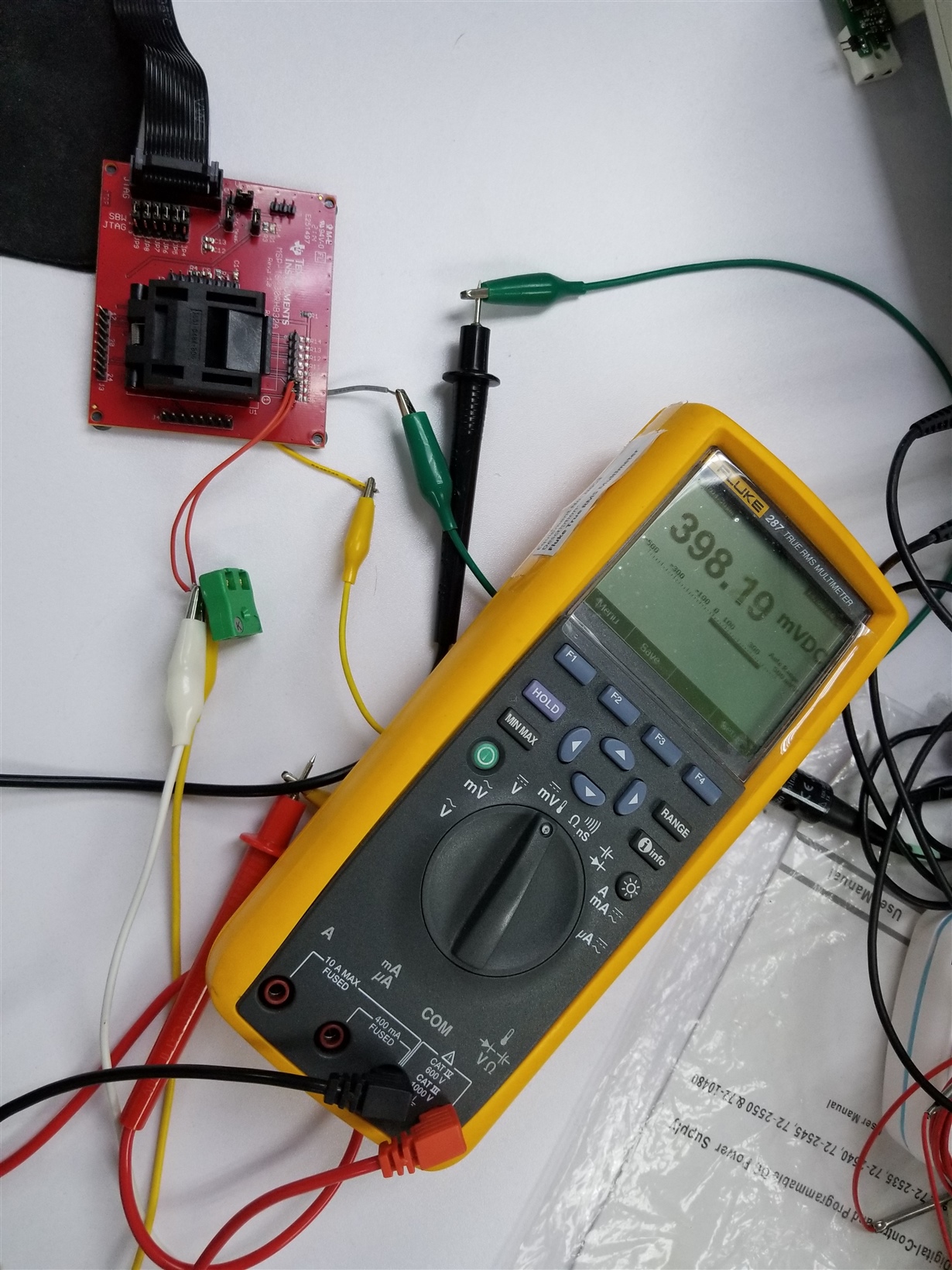Other Parts Discussed in Thread: MSP-TS430RHB32A, , MSP-IQMATHLIB
Tool/software: TI C/C++ Compiler
hello,
- using development board: MSP-TS430RHB32A
I have using the sample code,"sd24_ex4_singleConversionSingleChannelPolling", but the results are different from my expected. Can you help? I expected that should be less than 10uV different
| Info. A | Info. B | Info. C | Info. D | Info. E | Info. F |
| Input Volt. (mV) | ADC count (in hex) | ADC count (in Dec) | ADC convert volt. (mV) | diff between result and input voltage (mV) | |
| 0.01 | 572 | 1394 | 1394 | 0.207722187 | 0.197722187 |
| 98.47 | ab65c | 702044 | 702044 | 104.6127081 | 6.142708092 |
| 198.36 | 15960a | 1414666 | 1414666 | 210.801661 | 12.44166101 |
| 298.53 | 207bd7 | 2128855 | 2128855 | 317.2241151 | 18.69411513 |
| 398.39 | 2b5599 | 2839961 | 2839961 | 423.1871665 | 24.79716645 |
| 499.63 | 36591a | 3561754 | 3561754 | 530.7427049 | 31.11270487 |
| 599.5 | 4130bc | 4272316 | 4272316 | 636.6246939 | 37.12469387 |
| 700.2 | 4c24a0 | 4990112 | 4990112 | 743.5846329 | 43.38463287 |
| 800 | 56fff9 | 5701625 | 5701625 | 849.6083319 | 49.60833192 |
| 897.6 | 61a044 | 6398020 | 6398020 | 953.3792734 | 55.77927341 |
| 997.4 | 6c7a65 | 7109221 | 7109221 | 1059.356481 | 61.95648084 |
Best regards,
T Hung


